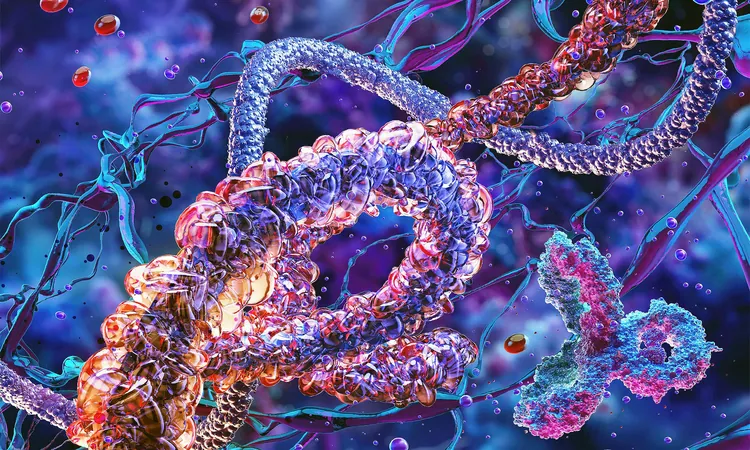
Breakthrough Discovery: Scientists Pinpoint How Life Began on Earth!
2025-08-31
Author: Amelia
Unlocking the Mystery of Life's Origins
For ages, the question of how life first emerged on Earth has captivated scientists. Now, a groundbreaking new study reveals a simple reaction in water that may have led to the creation of the first vital proteins!
The Role of Proteins in Early Life
Proteins are essential for various life functions, from repairing cells to defending against diseases. But how did those first proteins come into existence, predating the complex machinery of cells? This study, spearheaded by Professor Matthew Powner from University College London, delves into the prebiotic chemistry that could answer this puzzle.
Connecting RNA and Amino Acids
The research shows that RNA, a crucial molecule that carries genetic information, can chemically bond with amino acids. This reaction occurs under mild conditions in water, without the need for enzymes, making it a prime candidate for early Earth chemistry.
Harnessing Sulfur Chemistry
At the heart of this discovery lies sulfur chemistry, specifically thiols and thioesters, which are known to drive metabolic reactions in today’s cells. Thioesters are particularly favorable for early Earth conditions, allowing reactions to continue in water without quickly breaking down.
A Two-Step Process for Protein Formation
The researchers identified a method where thioesters effectively bond amino acids to RNA. This leads to the creation of 'aminoacyl RNA' and, through an additional step, the formation of 'peptidyl RNA'. This step is crucial as it represents the first steps towards building proteins.
A Watershed Moment for Chemistry and Biology
This new chemistry reveals how simple RNA could extend amino acids into longer chains, a significant leap towards the functionality of proteins. Dr. Jyoti Singh from UCL highlights the importance of these findings, suggesting they could connect metabolism, the genetic code, and protein synthesis.
Where Did It All Happen?
Surprisingly, this chemistry thrives in near-neutral waters, suggesting that life may have begun in small lakes or pools rather than the vast oceans. The study’s observations of effective reactions under icy conditions further support the notion that early life required specific environments.
Resolving the Chicken or Egg Dilemma
As modern biology relies on ribosomes to synthesize proteins, this research provides a simpler pathway for RNA to interact with amino acids independently. This could be the key in unravelling the longstanding chicken-or-egg dilemma of whether RNA or proteins came first.
What’s Next?
As scientists delve deeper into these mechanisms, they may unveil how early RNA made use of basic rules to create peptide sequences, setting the stage for the evolution of modern genetic coding. The implications of this study could reshape our understanding of how life as we know it began.
In Conclusion: A New Dawn for Origin of Life Research
Published in the journal Nature, this research is poised to redefine how we view the origins of life on Earth. With each revelation, we move closer to understanding the intricate web of chemistry that gives rise to life itself.









 Brasil (PT)
Brasil (PT)
 Canada (EN)
Canada (EN)
 Chile (ES)
Chile (ES)
 Česko (CS)
Česko (CS)
 대한민국 (KO)
대한민국 (KO)
 España (ES)
España (ES)
 France (FR)
France (FR)
 Hong Kong (EN)
Hong Kong (EN)
 Italia (IT)
Italia (IT)
 日本 (JA)
日本 (JA)
 Magyarország (HU)
Magyarország (HU)
 Norge (NO)
Norge (NO)
 Polska (PL)
Polska (PL)
 Schweiz (DE)
Schweiz (DE)
 Singapore (EN)
Singapore (EN)
 Sverige (SV)
Sverige (SV)
 Suomi (FI)
Suomi (FI)
 Türkiye (TR)
Türkiye (TR)
 الإمارات العربية المتحدة (AR)
الإمارات العربية المتحدة (AR)